Бенджамин Дизраэли - Tancred
Здесь есть возможность читать онлайн «Бенджамин Дизраэли - Tancred» весь текст электронной книги совершенно бесплатно (целиком полную версию без сокращений). В некоторых случаях можно слушать аудио, скачать через торрент в формате fb2 и присутствует краткое содержание. Год выпуска: 2014, Издательство: epubBooks Classics, Жанр: Классическая проза, на английском языке. Описание произведения, (предисловие) а так же отзывы посетителей доступны на портале библиотеки ЛибКат.
- Название:Tancred
- Автор:
- Издательство:epubBooks Classics
- Жанр:
- Год:2014
- ISBN:нет данных
- Рейтинг книги:4 / 5. Голосов: 1
-
Избранное:Добавить в избранное
- Отзывы:
-
Ваша оценка:
- 80
- 1
- 2
- 3
- 4
- 5
Tancred: краткое содержание, описание и аннотация
Предлагаем к чтению аннотацию, описание, краткое содержание или предисловие (зависит от того, что написал сам автор книги «Tancred»). Если вы не нашли необходимую информацию о книге — напишите в комментариях, мы постараемся отыскать её.
Tancred — читать онлайн бесплатно полную книгу (весь текст) целиком
Ниже представлен текст книги, разбитый по страницам. Система сохранения места последней прочитанной страницы, позволяет с удобством читать онлайн бесплатно книгу «Tancred», без необходимости каждый раз заново искать на чём Вы остановились. Поставьте закладку, и сможете в любой момент перейти на страницу, на которой закончили чтение.
Интервал:
Закладка:
A variety of causes and circumstances had impressed him with a conviction that what is called fashionable life was a compound of frivolity and fraud, of folly and vice; and he resolved never to enter it. To this he was, perhaps, in some degree unconsciously prompted by his reserved disposition, and by his painful sense of inexperience, for he looked forward to this world with almost as much of apprehension as of dislike. To politics, in the vulgar sense of the word, he had an equal repugnance. He had a lofty idea of his duty to his sovereign and his country, and felt within him the energies that would respond to a conjuncture. But he acceded to his title in a period of calmness, when nothing was called in question, and no danger was apprehended; and as for the fights of factions, the duke altogether held himself aloof from them; he wanted nothing, not even the blue ribbon which he was soon obliged to take. Next to his domestic hearth, all his being was concentrated in his duties as a great proprietor of the soil. On these he had long pondered, and these he attempted to fulfil. That performance, indeed, was as much a source of delight to him as of obligation. He loved the country and a country life. His reserve seemed to melt away the moment he was on his own soil. Courteous he ever was, but then he became gracious and hearty. He liked to assemble 'the county' around him; to keep 'the county' together; 'the county' seemed always his first thought; he was proud of 'the county,' where he reigned supreme, not more from his vast possessions than from the influence of his sweet yet stately character, which made those devoted to him who otherwise were independent of his sway.
From straitened circumstances, and without having had a single fancy of youth gratified, the Duke of Bellamont had been suddenly summoned to the lordship of an estate scarcely inferior in size and revenue to some continental principalities; to dwell in palaces and castles, to be surrounded by a disciplined retinue, and to find every wish and want gratified before they could be expressed or anticipated. Yet he showed no elation, and acceded to his inheritance as serene as if he had never felt a pang or proved a necessity. She whom in the hour of trial he had selected for the future partner of his life, though a remarkable woman, by a singular coincidence of feeling, for it was as much from her original character as from sympathy with her husband, confirmed him in all his moods.
Katherine, Duchess of Bellamont, was beautiful: small and delicate in structure, with a dazzling complexion, and a smile which, though rare, was of the most winning and brilliant character. Her rich brown hair and her deep blue eye might have become a dryad; but her brow denoted intellect of a high order, and her mouth spoke inexorable resolution. She was a woman of fixed opinions, and of firm and compact prejudices. Brought up in an austere circle, where on all matters irrevocable judgment had been passed, which enjoyed the advantages of knowing exactly what was true in dogma, what just in conduct, and what correct in manners, she had early acquired the convenient habit of decision, while her studious mind employed its considerable energies in mastering every writer who favoured those opinions which she had previously determined were the right ones.
The duchess was deep in the divinity of the seventeenth century. In the controversies between the two churches, she could have perplexed St. Omers or Maynooth. Chillingworth might be found her boudoir. Not that her Grace's reading was confined to divinity; on the contrary, it was various and extensive. Puritan in religion, she was precisian in morals; but in both she was sincere. She was so in all things. Her nature was frank and simple; if she were inflexible, she at least wished to be just; and though very conscious of the greatness of her position, she was so sensible of its duties that there was scarcely any exertion which she would evade, or any humility from which she would shrink, if she believed she were doing her duty to her God or to her neighbour.
It will be seen, therefore, that the Duke of Bellamont found no obstacle in his wife, who otherwise much influenced his conduct, to the plans which he had pre–conceived for the conduct of his life after marriage. The duchess shrank, with a feeling of haughty terror from that world of fashion which would have so willingly greeted her. During the greater part of the year, therefore, the Bellamonts resided in their magnificent castle, in their distant county, occupied with all the business and the pleasures of the provinces. While the duke, at the head of the magistracy, in the management of his estates, and in the sports of which he was fond, found ample occupation, his wife gave an impulse to the charity of the county, founded schools, endowed churches, received their neighbours, read her books, and amused herself in the creation of beautiful gardens, for which she had a passion.
After Easter, Parliament requiring their presence, the courtyard of one of the few palaces in London opened, and the world learnt that the Duke and Duchess of Bellamont had arrived at Bellamont House, from Montacute Castle. During their stay in town, which they made as brief as they well could, and which never exceeded three months, they gave a series of great dinners, principally attended by noble relations and those families of the county who were so fortunate as to have also a residence in London. Regularly every year, also, there was a grand banquet given to some members of the royal family by the Duke and Duchess of Bellamont, and regularly every year the Duke and Duchess of Bellamont had the honour of dining at the palace. Except at a ball or concert under the royal roof, the duke and duchess were never seen anywhere in the evening. The great ladies indeed, the Lady St. Julians and the Marchionesses of Deloraine, always sent them invitations, though they were ever declined. But the Bellamonts maintained a sort of traditional acquaintance with a few great houses, either by the ties of relationship, which, among the aristocracy, are very ramified, or by occasionally receiving travelling magnificoes at their hospitable castle.
To the great body, however, of what is called 'the world,' the world that lives in St. James' Street and Pall Mall, that looks out of a club window, and surveys mankind as Lucretius from his philosophic tower; the world of the Georges and the Jemmys; of Mr. Cassilis and Mr. Melton; of the Milfords and the Fitz–Herons, the Berners and the Egertons, the Mr. Ormsbys and the Alfred Mountchesneys, the Duke and Duchess of Bellamont were absolutely unknown.
All that the world knew was, that there was a great peer who was called Duke of Bellamont; that there was a great house in London, with a courtyard, which bore his name; that he had a castle in the country, which was one of the boasts of England; and that this great duke had a duchess; but they never met them anywhere, nor did their wives and their sisters, and the ladies whom they admired, or who admired them, either at ball or at breakfast, either at morning dances or at evening déjeuners. It was clear, therefore, that the Bellamonts might be very great people, but they were not in 'society.'
It must have been some organic law, or some fate which uses structure for its fulfilment, but again it seemed that the continuance of the great house of Montacute should depend upon the life of a single being. The duke, like his father and his grandfather, was favoured only with one child, but that child was again a son. From the moment of his birth, the very existence of his parents seemed identified with his welfare. The duke and his wife mutually assumed to each other a secondary position, in comparison with that occupied by their offspring. From the hour of his birth to the moment when this history opens, and when he was about to complete his majority, never had such solicitude been lavished on human being as had been continuously devoted to the life of the young Lord Montacute. During his earlier education he scarcely quitted home. He had, indeed, once been shown to Eton, surrounded by faithful domestics, and accompanied by a private tutor, whose vigilance would not have disgraced a superintendent of police; but the scarlet fever happened to break out during his first half, and Lord Montacute was instantly snatched away from the scene of danger, where he was never again to appear. At eighteen he went to Christ–church. His mother, who had nursed him herself, wrote to him every day; but this was not found sufficient, and the duke hired a residence in the neighourhood of the university, in order that they might occasionally see their son during term.
Читать дальшеИнтервал:
Закладка:
Похожие книги на «Tancred»
Представляем Вашему вниманию похожие книги на «Tancred» списком для выбора. Мы отобрали схожую по названию и смыслу литературу в надежде предоставить читателям больше вариантов отыскать новые, интересные, ещё непрочитанные произведения.
Обсуждение, отзывы о книге «Tancred» и просто собственные мнения читателей. Оставьте ваши комментарии, напишите, что Вы думаете о произведении, его смысле или главных героях. Укажите что конкретно понравилось, а что нет, и почему Вы так считаете.
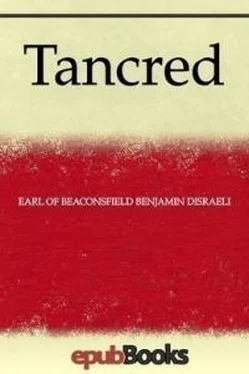
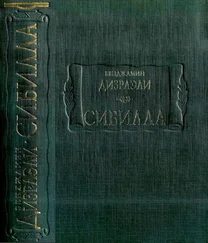
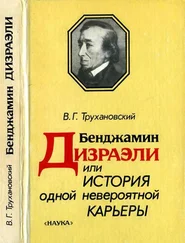
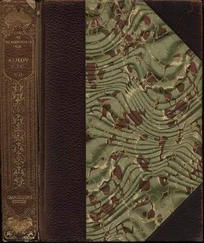


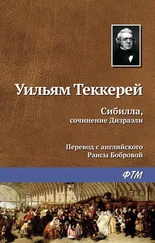
![Мелани Бенджамин - Госпожа отеля «Ритц» [litres]](/books/384861/melani-bendzhamin-gospozha-otelya-ritc-litres-thumb.webp)




